Vietnam - like many developing countries is entering a transition period, looking for alternatives to antibiotics with advanced biotechnology and nutrition. One of the pioneering international companies is Auranta (Ireland).
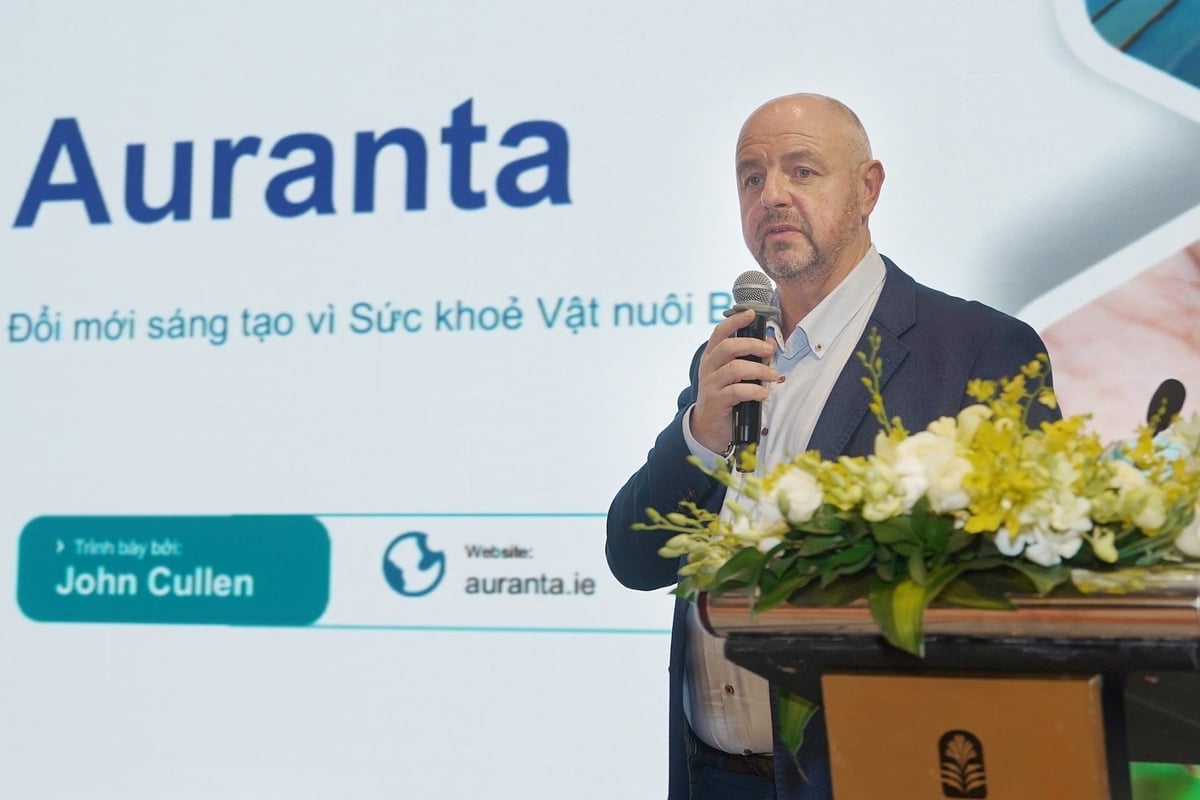
Mr. John Cullen, CEO of Auranta. Photo: Bao Thang.
Mr. John Cullen, CEO of Auranta, said that the company started from a group of Irish scientists who researched microorganisms and natural active ingredients in animal nutrition. “We are looking for ways to help animals be healthy from the inside out instead of just relying on drugs,” he said in his presentation at the Vietnam-Ireland Bilateral Cooperation Conference on Transforming the Agriculture -Food System on the morning of November 4.
Auranta develops a range of biological products based on natural compounds extracted from plants, capable of activating the immune system, improving the intestinal tract and reducing the rate of infection. These products have been applied in more than 20 countries, especially in Europe and South America, helping to reduce 40 - 60% of the amount of antibiotics used in poultry and pig farming while maintaining growth performance.
“We are not simply manufacturing drugs but developing bio-nutrition technologies to change the way livestock are raised. It is important to create an agricultural ecosystem that is not dependent on antibiotics,” said Mr. John Cullen.
Auranta is currently working with a number of Vietnamese companies and research institutes to test this technology on poultry and pig farms in some northern provinces. Initial experiments have shown positive results, with higher survival rates, fewer intestinal diseases and stable weight gain, while the amount of antibiotics has been significantly reduced.
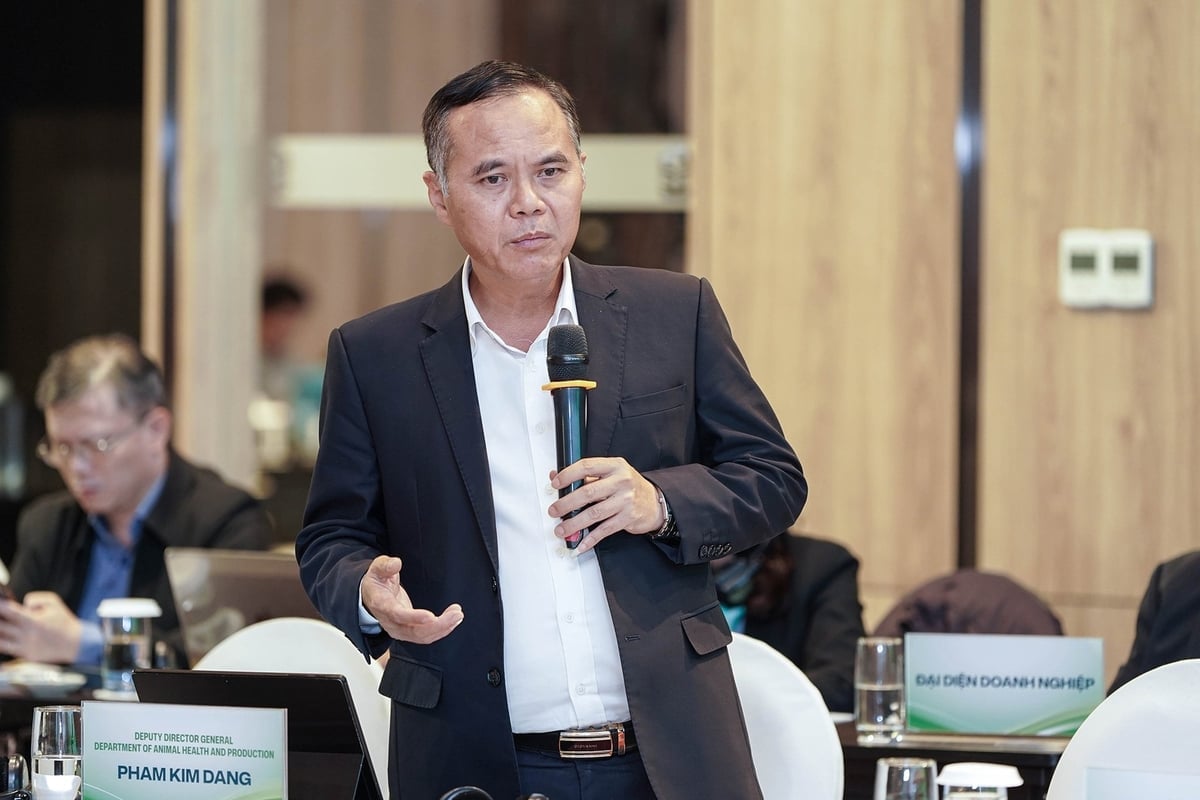
Mr. Pham Kim Dang, Deputy Director of the Department of Animal Husbandry and Veterinary Medicine, spoke at the conference. Photo: Bao Thang.
Mr. Cullen said that Vietnam has favorable conditions to quickly deploy biotechnology because small and medium-sized farms account for the majority, making it easy to directly access and monitor field responses. “We are not here to sell products but to research and transfer together,” he said.
Another direction of cooperation that Auranta proposed is to build antibiotic-free livestock models for growth, in conjunction with the Vietnam National University of Agriculture (VNUA) towards developing a safe and traceable food chain.
Agreeing with the idea of developing livestock farming in chains, Mr. Pham Kim Dang, Deputy Director of the Department of Animal Husbandry and Veterinary Medicine, emphasized that Vietnam currently has a fairly complete institutional system, including the Law on Animal Husbandry, the Law on Veterinary Medicine, the Industry Development Strategy and 5 specialized projects to support areas such as breeds, animal feed, etc.
In particular, the Land Law (amended) including "concentrated livestock land" in the land classification group is a big step forward, creating a solid legal foundation for the industry to enter a period of modern, sustainable transformation and deep international integration.
Mr. Dang affirmed that Vietnam wants to learn from Ireland's sustainable livestock farming model, especially in terms of animal welfare, food safety and environmental management on farms. Vietnam has included animal welfare in the Animal Husbandry Law since 2018, but implementation remains difficult due to differences in awareness and production scale among households.
Vietnam hopes Ireland will support digital transformation in livestock management, promote technology application and innovation to ensure farmers' livelihoods while still complying with international standards.
In addition, Vietnam encourages Irish businesses not only to cooperate in trade but also to invest directly in livestock farming and processing to increase value in the product chain. “Our goal is not to increase the herd but to increase the value of products, develop the livestock industry in a more modern, efficient and sustainable direction,” Mr. Pham Kim Dang affirmed.
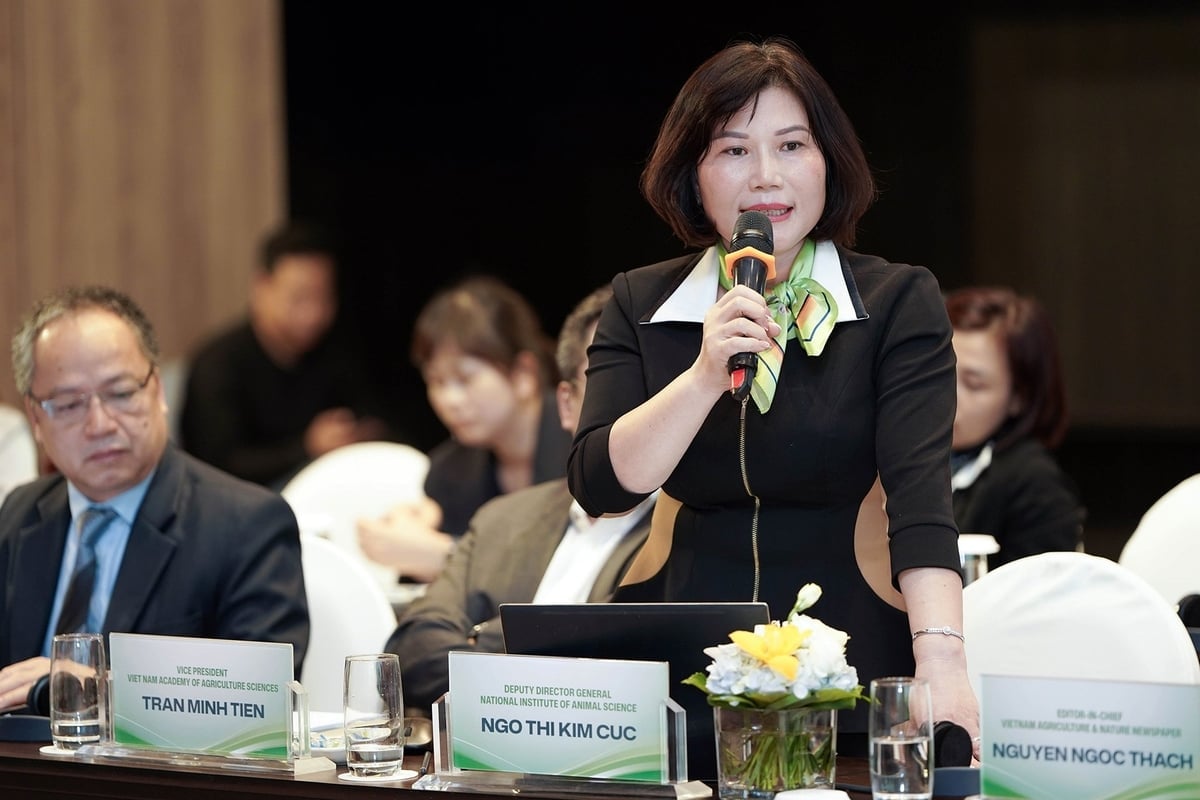
Associate Professor, Dr. Ngo Thi Kim Cuc, Deputy Director of the Institute of Animal Husbandry, spoke at the conference. Photo: Bao Thang.
Associate Professor Dr. Ngo Thi Kim Cuc, Deputy Director of the Institute of Animal Husbandry, said that sustainable livestock transformation cannot be separated from scientific research. The Institute is implementing topics on ecological agriculture and systemic health, linking soil health - crops - livestock - humans according to the One Health framework that Vietnam is promoting.
She said Vietnam currently lacks comprehensive scientific data on the relationship between soil quality, livestock health and ecosystem impacts. “We look forward to working with Ireland to measure, evaluate and develop a set of soil health and livestock ecosystem indicators to serve policy making and technology transfer to farmers,” said Ms. Kim Cuc.
As Vietnam aims to reduce antibiotics in livestock by 30% by 2030, collaborations like the one between Auranta and its Vietnamese partners are paving a new path – where science, policy and markets come together for a healthier and more sustainable food system.
As Dr. John Rae, Director of Sustainable Food Systems Ireland (SFSI), who is in charge of coordinating the IVAP program, sees food system transformation as a journey, then businesses are the key gear connecting research, policy and market.
Vietnam is in a good position to both improve its food safety policies and open up to cooperation with green business models. “We believe that biological innovations not only help reduce antibiotics but also contribute to the goal of low emissions in agriculture,” Mr. John Rae affirmed.
Source: https://nongnghiepmoitruong.vn/chan-nuoi-an-toan-bi-hoc-mo-loi-chuyen-doi-he-thong-luong-thuc-thuc-pham-d782288.html




![[Photo] Panorama of the Patriotic Emulation Congress of Nhan Dan Newspaper for the period 2025-2030](https://vphoto.vietnam.vn/thumb/1200x675/vietnam/resource/IMAGE/2025/11/04/1762252775462_ndo_br_dhthiduayeuncbaond-6125-jpg.webp)
![[Photo] Ho Chi Minh City Youth Take Action for a Cleaner Environment](https://vphoto.vietnam.vn/thumb/1200x675/vietnam/resource/IMAGE/2025/11/04/1762233574890_550816358-1108586934787014-6430522970717297480-n-1-jpg.webp)
![[Photo] Ca Mau "struggling" to cope with the highest tide of the year, forecast to exceed alert level 3](https://vphoto.vietnam.vn/thumb/1200x675/vietnam/resource/IMAGE/2025/11/04/1762235371445_ndo_br_trieu-cuong-2-6486-jpg.webp)
![[Photo] The road connecting Dong Nai with Ho Chi Minh City is still unfinished after 5 years of construction.](https://vphoto.vietnam.vn/thumb/1200x675/vietnam/resource/IMAGE/2025/11/04/1762241675985_ndo_br_dji-20251104104418-0635-d-resize-1295-jpg.webp)
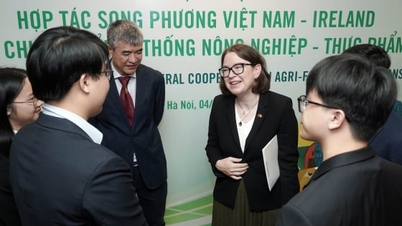

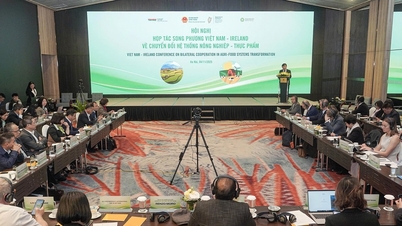

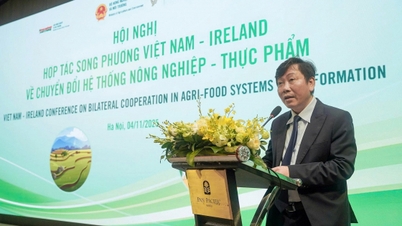





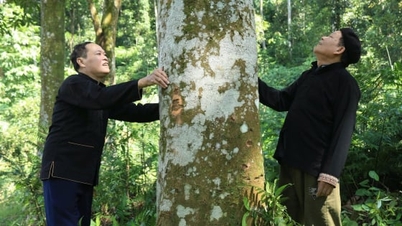
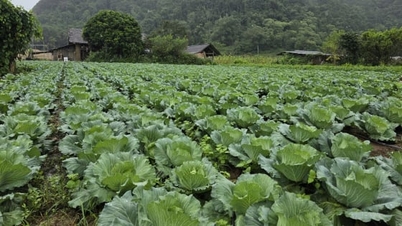
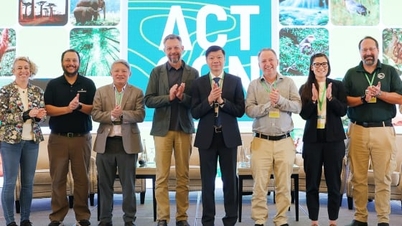
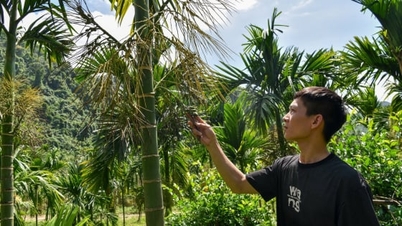
![Veterinary vaccine story: [Part 1] Trust from healthy ducks](https://vphoto.vietnam.vn/thumb/402x226/vietnam/resource/IMAGE/2025/11/04/1762242604682_0249-dsc09461-145316_229.jpeg)







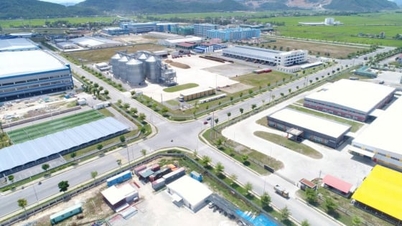


















































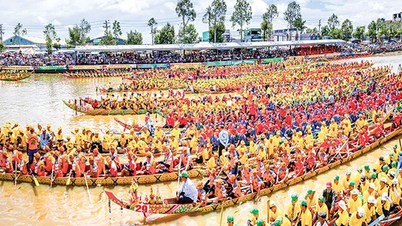

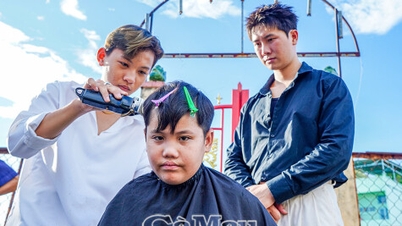

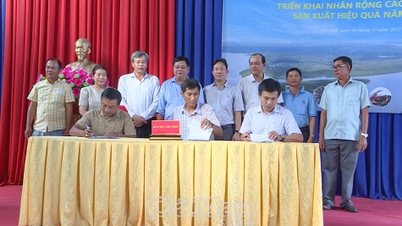
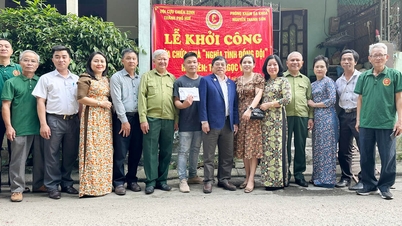













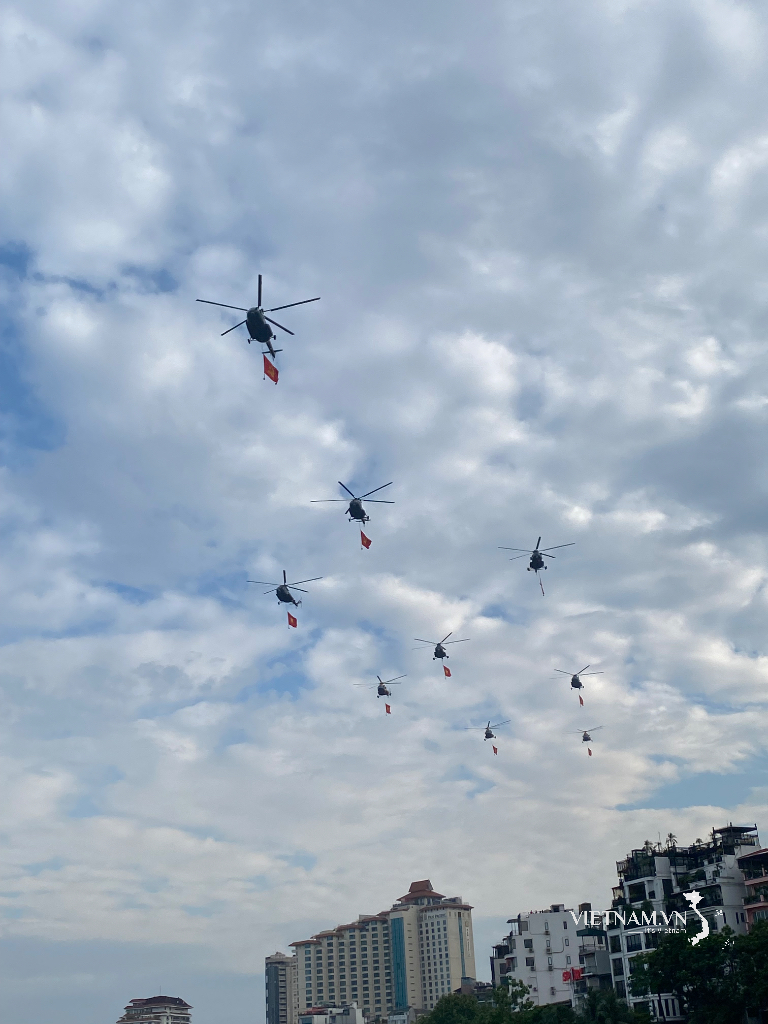


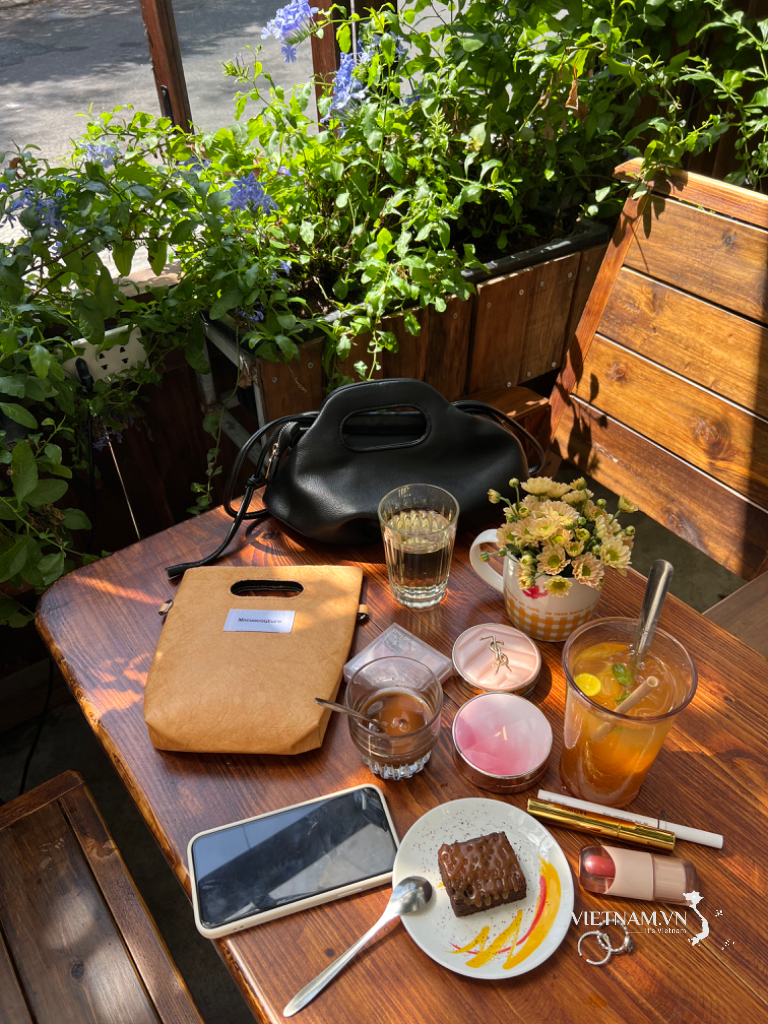
Comment (0)